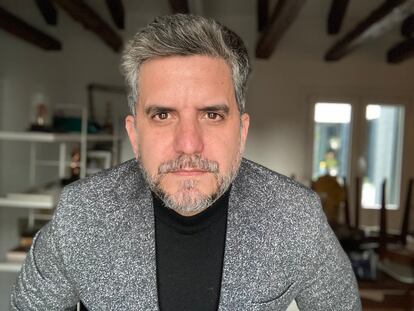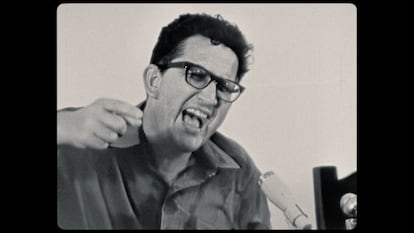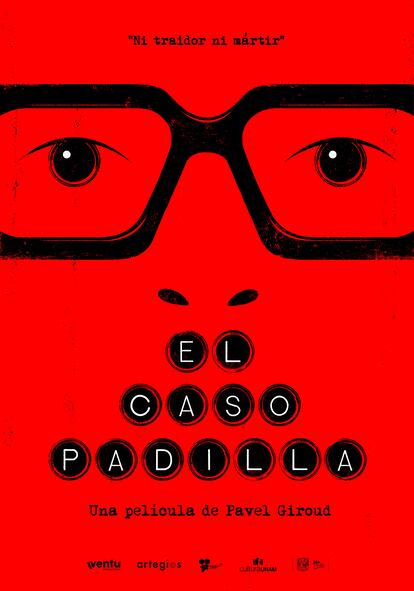Filmmaker Pavel Giroud: ‘The Cuban Revolution has the best marketing in the world’
‘El Caso Padilla’ documentary used unpublished material to expose the censorship and repression writer Heberto Padilla endured under the Castro regime


Cuban writer Heberto Padilla published a book of poetry called Fuera del Juego (Out of Bounds) in the late 1960s and was awarded a local literary award named after poet Julián de Casal for verses that excoriated the “Soviet-style” influences on the Castro regime after the Cuban Revolution. Fidel Castro waited two years before ordering Padilla’s carefully-orchestrated arrest on March 20, 1971, charging him with “treason against the homeland.”
Padilla was released from jail 38 days later and was forced to read a statement apologizing for his “subversive” writings. Foreign and local writers, artists, and intellectuals soon bombarded Castro with letters of objection. Disillusioned and downtrodden, Padilla left Cuba in the 1980s for the United States, where he died in 2000.
El Caso Padilla (The Padilla Affair), a documentary film by Pavel Giroud, explores the controversy surrounding Padilla’s treatment by the Castro regime and its significance for the Cuban, Latin American and international intellectual community. It thoroughly examines the incident from various perspectives and documents events before and after the uproar. Giroud had read Padilla’s own account of the events in his autobiography and initially planned to make a fiction movie about it. But his focus changed dramatically when new material surfaced after 50 years.

Shortly after his arrest, the Cuban Institute of Cinematographic Art and Industry (ICAIC) filmed a three-hour interview with Padilla, where he admitted to being “counterrevolutionary.” Originally intended for Fidel Castro’s eyes only, this footage surfaced when Cuba experienced a period of openness after the collapse of the Eastern Europe socialist bloc, prompting a reassessment of the island nation’s ideological and political foundations. “Carlos Aldana, a Communist Party ideologue, filmed a number of discussions between the youth and the Cuban government,” said Giroud. “It occurred to him that it might be a good opportunity to discuss the [Padilla] case. I was given a copy of one of these Betamax videotapes, but I was asked not to disclose my source.”
The footage is the foundation of Giroud’s documentary, and features a gripping monologue by a man torn by his confession. Padilla reveals conflicted emotions — dread, sadness, terror, and disillusionment — culminating in one of the most tragic moments of the Cuban Revolution. In front of a crowd of authors and artists, Padilla embodied the timeless “revolution or death” dilemma, presenting a stark and unsettling portrait of fear as a cautionary tale against supporting the counterrevolution.
“It was quite challenging,” said Giroud. “How could I help a 13-year-old from Sweden or Japan understand this story? I made a conscious effort to focus on the narrative of a man oppressed by power, and set aside ideological matters. The most relatable historical example is Galileo. In this case, the Cuban Revolution plays the role of the Roman Inquisition, and Padilla is on trial as Galileo.”
Giroud also used the example of author Boris Pasternak’s (Doctor Zhivago) censorship and oppression by the Soviet Union as context for the documentary. El Caso Padilla, which won the award for Best Documentary at the 2023 Platino Awards, evokes the memory of the head of the USSR’s Young Communist League declaring, “If you compare Pasternak to a pig, a pig would not do what he did, because a pig, never shits where it eats.” Giroud made sure to preserve the sequence of events that occurred that night in Cuba. He edited and refined the narrative while also incorporating interviews with authors who supported Padilla, such as Julio Cortázar, Gabriel García Márquez, Jorge Edwards, Carlos Fuentes, Jean-Paul Sartre, and even an interview with Fidel Castro himself.

“I believe these elements add layers to the film,” said Giroud. “I don’t mention the words tyranny or dictatorship, nor do I criticize Fidel Castro. Instead, I focus on an event and everything that went into it. I think Cuban dissidents make a big mistake in only communicating with people who are already against the regime, instead of reaching out to those who need convincing. That was my goal with this film.” The documentary explores a historical event, yet remains relevant as it sheds light on ongoing censorship in Cuba and authoritarianism in Nicaragua and Venezuela, which cannot be held up as “progressive models,” says Giroud.
“Cuba has always blamed the blockade for its problems,” said Giroud. “But how does that make you see enemies in poetry? Things are very wrong when you start fearing poets, and in that sense, the Cuban Revolution has been screwed up since 1961. The Cuban Revolution has the best marketing in the world — there are many people on the island who know what’s going on but refuse to take off their blindfolds. One of our film’s triumphs is that it exposes leftists who have turned a blind eye and remained silent for years, knowing that dignity and justice cannot be found in Cuba.”
Sign up for our weekly newsletter to get more English-language news coverage from EL PAÍS USA Edition
Tu suscripción se está usando en otro dispositivo
¿Quieres añadir otro usuario a tu suscripción?
Si continúas leyendo en este dispositivo, no se podrá leer en el otro.
FlechaTu suscripción se está usando en otro dispositivo y solo puedes acceder a EL PAÍS desde un dispositivo a la vez.
Si quieres compartir tu cuenta, cambia tu suscripción a la modalidad Premium, así podrás añadir otro usuario. Cada uno accederá con su propia cuenta de email, lo que os permitirá personalizar vuestra experiencia en EL PAÍS.
¿Tienes una suscripción de empresa? Accede aquí para contratar más cuentas.
En el caso de no saber quién está usando tu cuenta, te recomendamos cambiar tu contraseña aquí.
Si decides continuar compartiendo tu cuenta, este mensaje se mostrará en tu dispositivo y en el de la otra persona que está usando tu cuenta de forma indefinida, afectando a tu experiencia de lectura. Puedes consultar aquí los términos y condiciones de la suscripción digital.








































